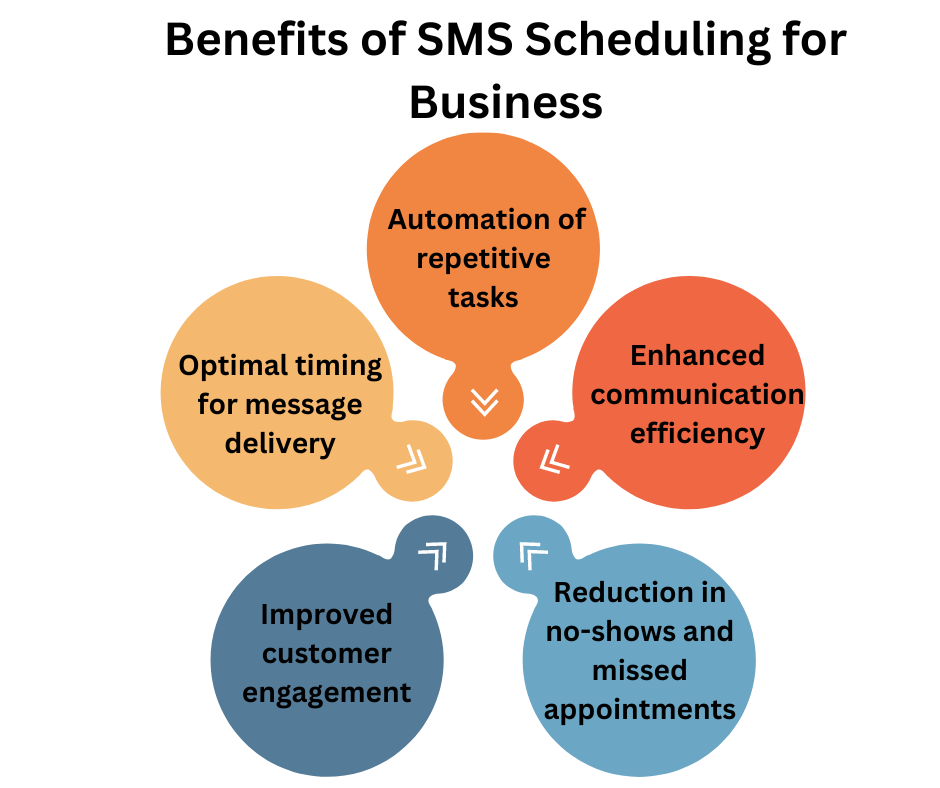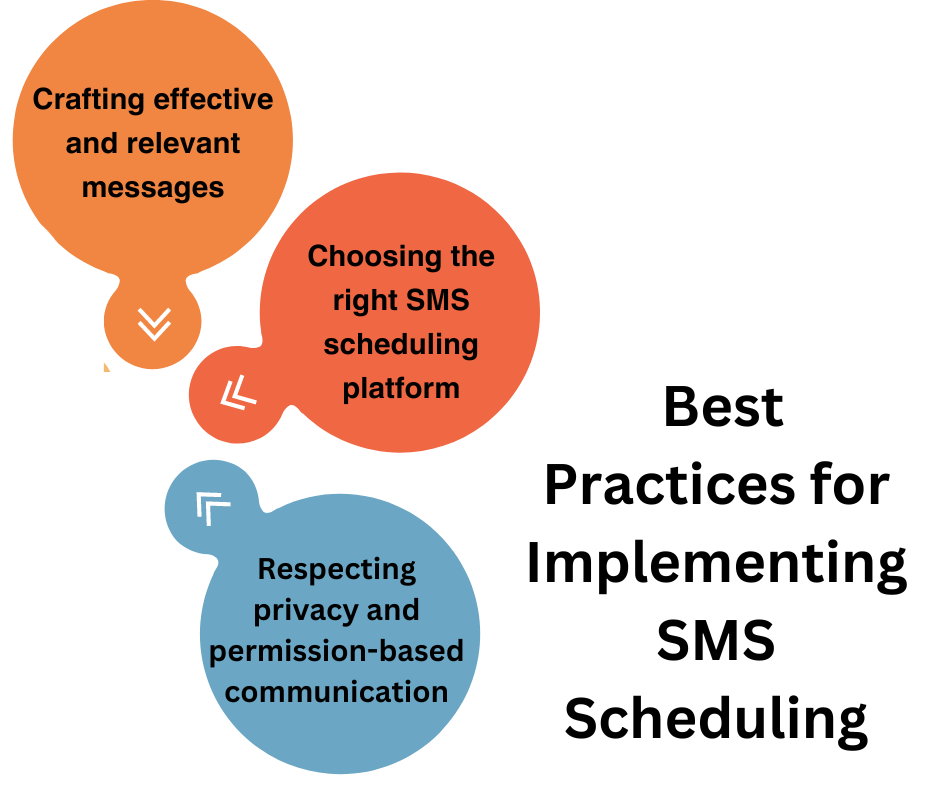How Does SMS Scheduling Benefits Business?
SMS scheduling is the process of setting up and automating the sending of text messages at a specified date and time.
This allows users to compose messages in advance and deliver them later, which can benefit various personal and business-related communications. SMS scheduling is important for several reasons.
It allows for efficient time management by enabling messages to be prepared and scheduled during off-peak hours for delivery during peak times.
Additionally, it ensures that messages are sent at an optimal time for recipient engagement, increasing the likelihood of the message being read and acted upon.
Furthermore, SMS scheduling can be a valuable tool for marketing campaigns, reminders, and other time-sensitive communications.
Benefits of SMS Scheduling for Business
Incorporating SMS scheduling into their communication strategy allows businesses to significantly improve customer engagement.
By strategically timing the delivery of SMS messages, businesses can ensure that they reach their customers at the most opportune moments, thereby fostering better engagement and interaction.
Additionally, SMS scheduling enhances communication efficiency by enabling businesses to plan and organize their messaging with customers, resulting in more effective and targeted communication.

Furthermore, the ability to schedule SMS messages empowers businesses to deliver important information at optimal times, increasing the likelihood of customers seeing and responding to them.
Moreover, scheduled SMS messages can help businesses reduce the occurrence of no-shows and missed appointments by sending timely reminders and confirmations to customers.
Additionally, SMS scheduling allows businesses to automate repetitive tasks related to customer communication.
By automating the process of sending routine messages, businesses can save time and resources while ensuring consistent and timely communication with their customers.
Best Practices for Implementing SMS Scheduling
When implementing SMS scheduling, it’s crucial to adhere to these best practices for optimal results:
Selecting the right SMS scheduling platform
It is essential to carefully choose a platform that aligns with your organization’s specific needs. Consider factors such as scheduling options, reporting capabilities, and integration with other systems.
Ensure that the platform is reliable, user-friendly, and offers the necessary features to support your SMS scheduling requirements.

Developing effective and relevant messages
Take the time to craft messages that are not only clear and concise but also highly relevant to your target audience. Personalize the content whenever possible to enhance engagement.
Additionally, consider the timing of your messages to ensure that they have the greatest impact.
Prioritizing privacy and permission-based communication
Always obtain explicit consent from recipients before sending them SMS messages. Respect their privacy by providing clear instructions for opting out of further communications.
It’s important to adhere to privacy regulations and best practices to build and maintain trust with your audience.

